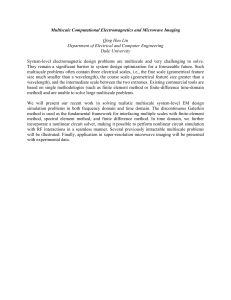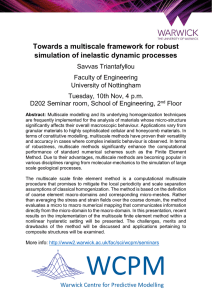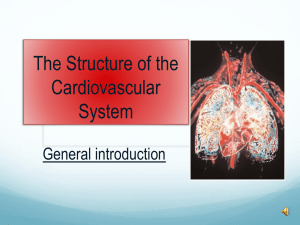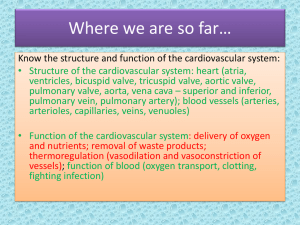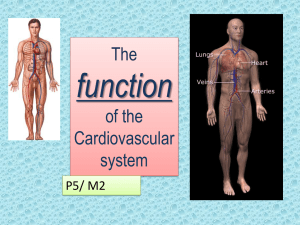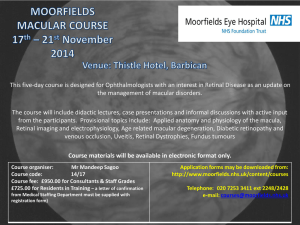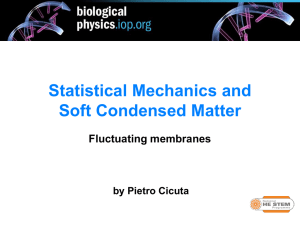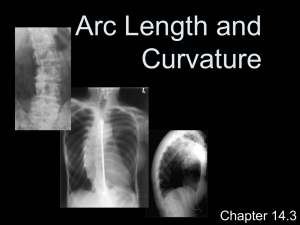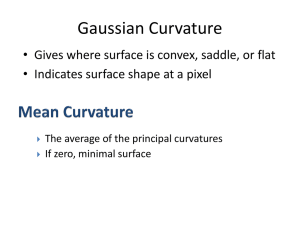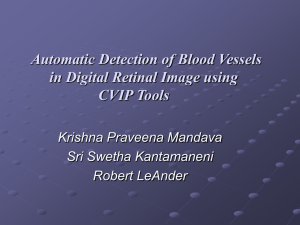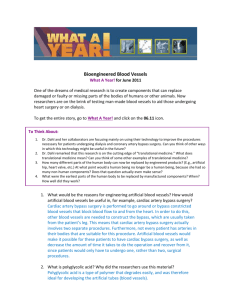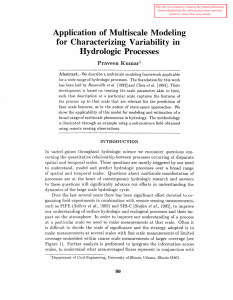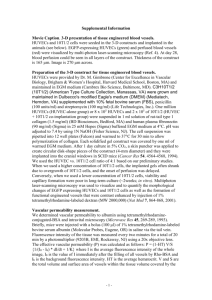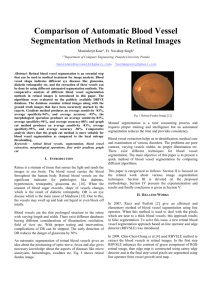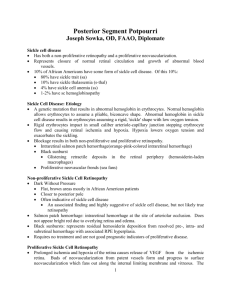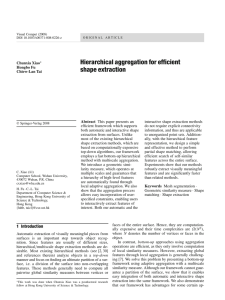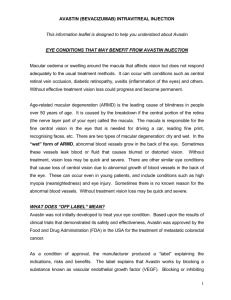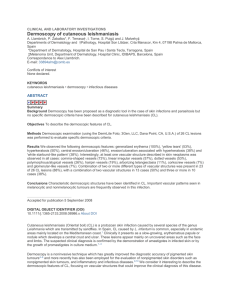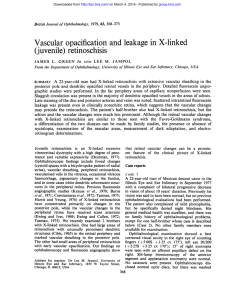Segmentation of blood vessels from red
advertisement
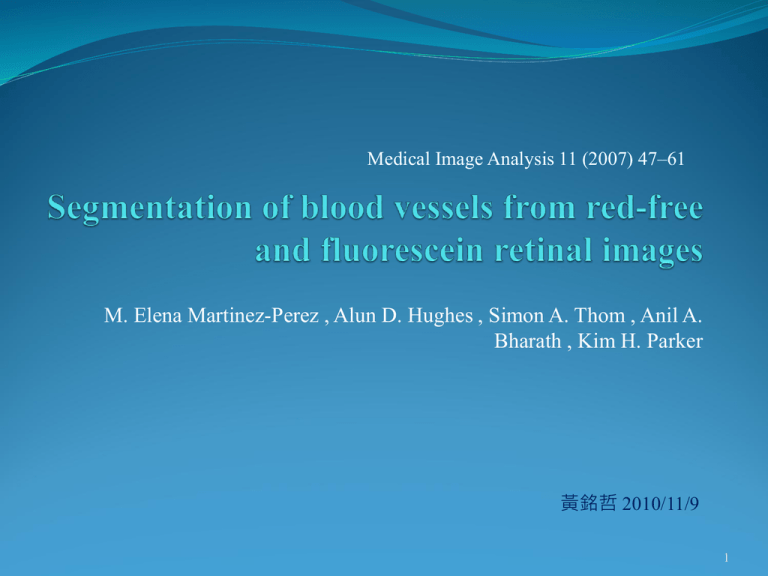
Medical Image Analysis 11 (2007) 47–61 M. Elena Martinez-Perez , Alun D. Hughes , Simon A. Thom , Anil A. Bharath , Kim H. Parker 黃銘哲 2010/11/9 1 Outline 1.Introduction 2.Method 3.Result 4.Validation 5.Conclusions 2 Introduction The eye is a window to the retinal vascular system which is uniquely accessible for the non-invasive, in vivo study of a continuous vascular bed in humans. Retinal blood vessels have been shown to change in diameter, branching angles or tortuosity, as a result of a disease, such as : Hypertension diabetes mellitus retinopathy of prematurity (ROP) 3 Introduction Green band is chosen in the present work because it is known to show the improved visibility of the retinal blood vessels. 4 Multiscale Retinal blood vessels have a range of different sizes. Multiscale techniques have been developed to provide a way to isolate information about objects in an image by looking for geometric features at different scales. 5 Multiscale The effect of convolving an image with a Gaussian kernel is to suppress most of the structures in the image with a characteristic length less than s. 6 Feature extraction Gradient magnitude - The magnitude of the gradient represents the slope of the image intensity for a particular value of the scale parameter s. 7 Feature extraction Principal curvature - Since vessels appear as ridge-like structures in the images, we look for pixels where the intensity image has a local maximum in the direction for which the gradient of the image undergoes the largest change (largest concavity). 8 Feature extraction The second derivative information is derived from the Hessian of the intensity image I(x,y): The eigenvalues, λ+and λ-, where we take λ+ ≥ λ-, measure convexity and concavity in the corresponding eigendirections. 9 Feature extraction 10 Feature extraction In order to analyse both red-free and fluorescein images with the same algorithm, we define λ1 = min(|λ+|, |λ-|) and λ2 = max(|λ+|, |λ-|). The maximum eigenvalue, λ2 , corresponds to the maximum principal curvature of the Hessian tensor, which we will refer to as maximum principal curvature. 11 Multiscale integration This might be expected, particularly for maximum principal curvature, since the vessels are approximately cylindrical so that the total amount of blood in the light path corresponding to each pixel is larger in large vessels. Vessels with diameter d ≈ 2s are most strongly detected when the scale factor is s, we normalised each feature along scales by d and then kept the local maxima over scales: 12 Multiscale integration 13 Region growing The region growing algorithm we use is based on an iterative relaxation technique, using: Histograms of the extracted features, primarily upon the maximum principal curvature κ. The classification of the eight-neighbouring pixels 14 Region growing In first stage, classes grow initially in regions with low gradient magnitude, γ, allowing a relatively broad and fast classification while suppressing classification in the edge regions where the gradients are large. In second stage, the classification constraint is relaxed and classes grow based solely upon κ to allow the definition of borders between regions. 15 Region growing 16 Result 17 Comparison with average diameter 18 Conclusions MS doesn’t perform better than other method. However, we concluded that an analysis of true and false positive rate values does not give us the information needed about the accuracy of segmenting vessels when geometric measurements such as vessel widths are of interest. And from the third validation, we conclude that the approach presented gives comparable estimates of diameter and branching angles in both red-free and fluorescein image. 19
